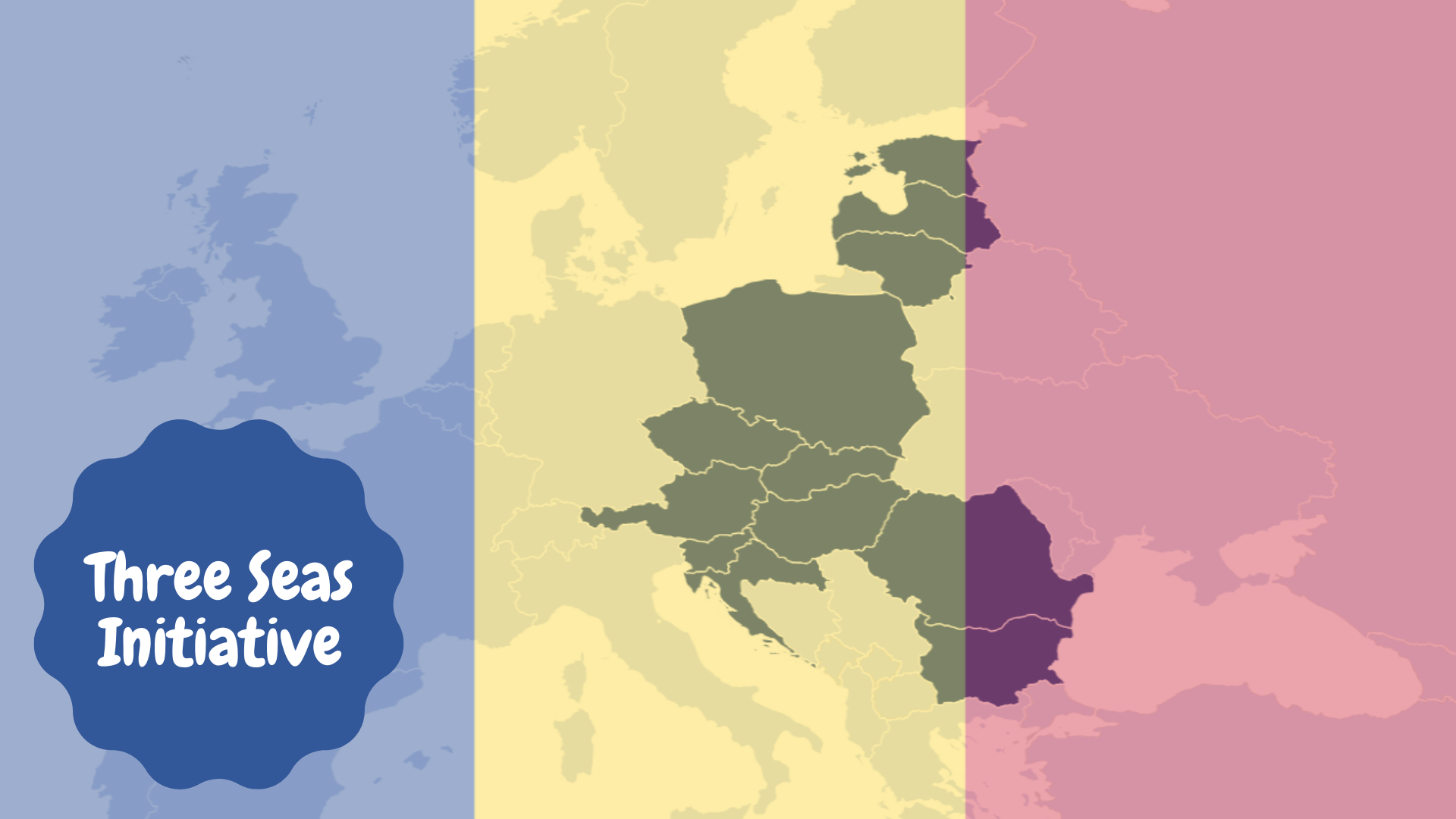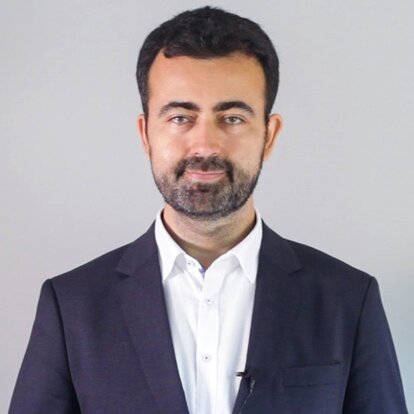Three Seas Initiative
Romania's Perspective on the Three-Seas-Initiative

In the past, Romania has not been particularly involved in regional projects and organizations. Rather, the country pursues a watered-down form of isolationist policy which inevitably raises the question to what extent Romania will actually be engaged in the Three-Seas-Initiative (Milewski, 2017). For Romania, strengthening economic cooperation in the region is not the only objective, security considerations play an equally significant role. With its vulnerability to Russian aggression, Romania has a strong interest in maintaining good relations with the West, first and foremost with the United States. The Three-Seas-Initiative could prove useful in this regard.
Romania's Role and Integration in the Region
By no means do the member states of the Three-Seas-Initiative share the same identity or national interests. This is clearly reflected in the intergovernmental relations among members. While Romania is willing to cooperate more closely with Poland in the Three-Seas-Initiative, there is still tension between Romania and Hungary. It is not yet clear whether this complex and difficult relationship between the two states will eventually jeopardize the initiative's prospects of success. In this context, Romania's recent interest in regional cooperation could pose an additional threat (Górka, 2018; Milewski, 2017).
Although the country principally pursues some kind of isolationist policy, it is increasingly showing interest in cooperation with other European states. In fact, in the future, Romania would like to incorporate its own national interests in the Three-Seas-Initiative much more and would like to shape the course of the initiative more actively. However, Hungary has similar intentions which could already cause friction with Poland. If Romania indeed consolidated its own position in the initiative, this could further aggravate its tense relations with Hungary.
However, the intentions that the two countries pursue with the initiative are not completely opposed. For Romania, strengthening economic cooperation and expanding regional infrastructure are at least as relevant; in fact, the country still has some catching up to do in these areas compared to other member states of the Three-Seas-Initiative. Romania takes a different view when it comes to Putin's Russia, though. While Hungary takes a rather pro-Russian stance, Romania, similar to Poland and the Baltic states, perceives Russia as a dangerous threat.
Romania's Security Policy – the Russian Threat
In order to strengthen its own resilience and the resilience of Central and Eastern European states against Russia, Romania regards the Three-Seas-Initiative not only as an economic institution but also as a promising security policy tool. Romania hopes that the young European initiative will provide protection against Russia both indirectly, by increasing independence from Russian gas, and directly, by strengthening transatlantic and intra-European relations (Górka, 2018). Romania intends to further develop this security aspect of the initiative. From Romania's perspective, economic development of the region, which the initiative aims to achieve, can only succeed with security and independence from Russia (Milewski, 2017). The integration of the United States and Germany in the initiative is crucial to achieve this goal.
Romania places particularly high importance on good and close relations with the United States. With the help of the Three-Seas-Initiative, Romania aims to reinforce its strategic partnership with the American power in the economic and security field (Górka, 2018). Therefore, Michael Pompeo's announcement at the Munich Security Conference that the US would generously support the initiative's fund was appreciated with enthusiasm in Romania. Indeed, most of Romania's security policy already depends on US support. Germany and France are also valuable economic and political partners which is why Romania supports the Three-Seas-Initiative only as long as it is compatible with its relations to the United States, Germany, and France.
Ultimately, Romania, just like some other member states, will measure the success of the initiative primarily by the extent to which it creates protection against the Russian threat. For the Three-Seas-Initiative, this means that it must transform its economic success into security success – at least in Romanian eyes. Romania has a very similar expectation of its membership in the 17+1 initiative initiated by China. Since China's interest in Central and Eastern Europe has grown rapidly in recent years, China would indeed like to support the Three-Seas-Initiative in the future. The Romanian government would generally approve of this since it perceived China as another ally for protection against Russian aggression. However, starting 2020, the new liberal government attempts to change this friendly attitude towards China. It even excluded Chinese corporations from important sectors, such as nuclear power and telecommunications.
Interview with Radu Magdin
In the past, Romania has often struggled to translate its own national interests into concrete regional projects and organizations. How do you assess the chances for Romania to shape the course of the Three-Seas-Initiative according to its own ideas? What is Romania's position in the initiative?
Whereas Romania’s profile at regional level has not grown to its full potential yet, the Three Seas Initiative is a step in the right direction and perhaps one of the few regional formats set to deliver concrete economic benefits. Romania has thus been a staunch promoter of the Initiative, both at regional level and in contacts with the US Administration. Moreover, along with Poland, Romania has pushed for the operationalization of the Three Seas Initiative Investment Fund, which was launched during the Three Seas Summit in Bucharest in 2018, aiming to become a financial source for projects in the Initiative’s framework. While Romania is actively involved in the operationalization of the Initiative, thus shaping, in part, its growth and development, the country’s goal is not necessarily to leverage the Initiative’s political dimension, but to push for deliverables, especially the infrastructure projects known as Via Carpathia and Rail2Sea.
With its vulnerability to Russian aggression, security considerations play an important role in Romania's foreign policy. In your opinion, should the Three-Seas-Initiative promote security cooperation in the region in addition to the economic cooperation?
A stable and secure environment is a precondition for economic cooperation and foreign investments. Since the Three Seas Initiative benefits from US support and most of its participating states are NATO members, security considerations are taken into account when it comes to the development of strategic projects under this umbrella. In my opinion, however, the Three Seas Initiative should remain an economic tool and foster cooperation in the areas of infrastructure, energy and digital, with a security dimension, but without the goal of pushing for further security cooperation. In terms of security cooperation, the region is already NATO’s Eastern Flank and there are important regional formats in place, such as the Bucharest 9 format, which was endorsed by President Joe Biden earlier this year. Moreover, when it comes to security cooperation, while economic cooperation should follow a set of security standards, the two should be maintained separate and clear in scope.
Not only Russia and the U.S. are showing interest in Central and Eastern Europe, but also China's presence in the region is growing. How will the Three-Seas-Initiative likely affect Romanian-Chinese relations?
Romanian-Chinese relations are not currently in their best possible shape and there have been tensions related to unmet commitments from both sides. Romania is playing, in relation to China, the “pragmatism” card and, as stated by Government representatives, the country will continue to prioritize its commitments resulting from its EU and NATO membership, as well as the Romania - US Strategic Partnership. Since the Three Seas Initiative is focused mainly on infrastructure and energy projects, while seeking synergy with the EU in terms of planning and funding, it may indirectly affect the entire region’s relations with China. However, the Three Seas Initiative is not an “anti-China” format and the real difference between the projects in the Initiative’s framework and the projects pushed by China through Belt and Road or the 17+1 lies in the implemented standards. However, both formats, either Western-inspired or driven by China, are still lacking concrete results and deliverables that would allow a more in-depth analysis of their real geopolitical impact.
References
Górka, M. (2018). The Three Seas Initiative as a political challenge for the countries of Central and Eastern Europe. Politics in Central Europe, 14(3), 55-73.
Milewski, O. (2017). Romania and the three seas initiative. Polish Quarterly of International Affairs, 26(2), 206-217.
About the Author
Valerie Kornis completed an internship at the Central Europe and Baltic States Project Office. She graduated with a Bachelor of Science in International Relations and Organisations from Leiden University in The Netherlands and is currently pursuing a Master’s degree in Human Rights and Humanitarian Action at Sciences Po in Paris.
Radu Magdin
Radu Magdin is an international analyst, consultant and think tanker, as well as a former prime ministerial advisor in Romania and Moldova. Radu is a NATO Emerging Leader with the Atlantic Council of the US (2014), a Forbes Romania Trendsetter (2014), Warsaw Security Leader (2015) and a member of Forbes Business Council. Magdin has a Phd on Resilience to Russian Information Operations and is a widely quoted analyst by global media.

